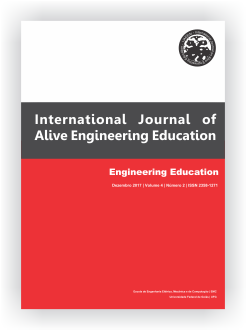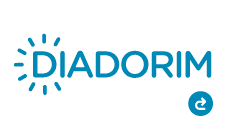The establishment of a program to act against dropout and retention rates on Biochemical Engineering
DOI:
https://doi.org/10.5216/ijaeedu.v4i2.48152Parole chiave:
academic skills, freshmen, motivational speeches, testimonies, time managementAbstract
The highest rates of evasion and dropout on the Biochemical Engineering major at Federal University of Rio Grande are observed during the first semesters of the undergraduate degree, in which are offered the courses that compose the basic cycle of Engineering and are the foundation for the advanced courses. Literature confirms that entering the university can be a very stressful and life changing process, reinforcing the need of special institutional attention to the freshmen. As an alternative to fight this negative scenario and promote integration among the students, a series of activities were proposed through the Program of Incentive to Academic Activities of Biochemical Engineering Students (PAIEB), supported by the Institutional Program of Student Development (PDE-FURG). During the school year of 2016, PAIEB offered a series of testimonies of juniors and seniors about their experiences on college (primary action), in addition to motivational speeches, and time management workshops (secondary action). To evaluate the activities and identify punctual problems to take directed actions, opinion and reflection surveys were conducted to all students that participated in the program activities. It was found that difficulty on time management and demotivation were key problems among the freshmen. In addition, the evasion level in 2016 remained stable when compared to the 2015 level (about 17%) and decreased roughly 3% when compared to 2014, and the retention level within the freshmen year did not show significant decrease. Therefore, the answers to the surveys applied showed that the program is helping on freshman interest and motivation and helped identifying actual problems representing that PAIEB could be working, in this case, as a complementation the recurrent traditional learning and education. Moreover, data collected from the university database implied that the program needs to be amplified and intensified to help decreasing evasion and retention among the Biochemical Engineering students.
Riferimenti bibliografici
G. Crisp, E. Palmer, D. Turnbull, T. Nettelbeck, L. Ward, “First year student expectations: Results from a university-wide student survey”, Journal of University Teaching & Learning Practice, vol. 6, no. 1, 2009, pp. 12-26.
N. Zepke, “Being learner centered: one way to improve student retention?”, Students in Higher Education, vol. 31, no. 5, 2006, pp. 15-64.
M. Meyer, S. Marx, “Engineering Dropouts: A Qualitative Examination of Why Undergraduates Leave Engineering”, Journal of Engineering Education, vol. 103, no. 4, 2014, pp. 525-548.
A. Salles, L. B. Marinho, A. Cajueiro, “Predicting Student Dropout: A Case Study in Brazilian Higher Education”, Proc. 3rd Symposium on Knowledge Discovery, Mining and Learning, Petrópolis, 2015, pp. 18-25.
National Institute for Educational Studies and Research (INEP). Available in . Date of access: 28 july 2017.
V. Tinto, “Limits of theory and practice in student attrition”, Journal of Higher Education, vol. 53, 1982, pp. 687-700.
S. W. Lee, C. Tsai, “Students’ perceptions of collaboration, self-regulated learning, and information seeking in the context of Internet-based learning and traditional learning”, Computers in Human Behavior, vol. 27, 2011, pp. 905-914.
Z. Zayapragassarazan, S. Kumar, “Active Learning Methods”, NTTC Bulletin, vol. 19, 2012, pp. 3-5.
K. Clayton, F. Blumberg, D. P. Auld, “The relationship between motivation, learning strategies and choice of environment whether traditional or including an online component”, British Journal of Education Technology, vol. 41, no. 3, 2010, pp. 349-364.
S. Freeman, S. L. Eddy, M. McDonough, M. K. Smith, N. Okoroafor, H. Jordt, M. P. Wenderoth, “Active learning increases student performance in science, engineering, and mathematics”, Proceedings of the National Academy of Sciences of the United States of America, vol. 111, no. 23, 2014, pp. 8410-8415.
L. E. Bernold, J. E. Spurlin, C. M. Anson, “Understanding Our Students: A Longitudinal-Study of Success and Failure in Engineering With Implications for Increased Retention”, Journal of Engineering Education, vol. 96, no. 3, 2007, pp. 263-274.
C. Cass, A. Kim, M. A. Tsugawa-Nieves, H. Perkings, J. N. Chestnut, D. E. Briggs, B. Miller, “Improving Performance and Retention of Engineering Graduate Students through Motivation and Identity Formation”, Proc. 2017 ASEE Annual Conference & Exposition, Columbus, 2017.
C. W. Hall, P. J. Kauffmann, K. L. Wuensch, W. E. Swart, K. A. DeUrquidi, O. H. Griffin, C. S. Duncan, “Aptitude and Personality Traits in Retention of Engineering Students”, Journal of Engineering Education, vol. 104, no. 2, 2015, pp. 167-188.
Downloads
Pubblicato
Fascicolo
Sezione
Licenza
Copyright
The author is responsible for the following statements by submitting an article electronically in the International Journal of Alive Engineering Education (IJAEEdu):
a) States that the document in question was reviewed by an expert in English language and it is an original work and it holds the prerogative to grant the rights contained in this license. It also states that the document does not infringe, as far as it is possible to know the rights of any other person or entity.
b) If the document in question contains material which does not hold the copyright, the author states have obtained the copyright holder’s permission to grant the Universidade Federal de Goiás (UFG) the rights required by this license, and that such material whose rights are third is clearly identified and acknowledged within the text or content of the document.
c) States that the study was conducted in accordance with the ethical standards of all applicable institutional, local, national and international guidelines.
d) It also states that any person appointed as author or co-author of the document is aware of it and agrees to be so appointed.
Authorization Form
As responsible for the submission of the document, I authorize the School of Electrical, Mechanical and Computer Engineering of the Federal University of Goiás to provide the paper free of charge, through the Electronic System for Publishing Magazines UFG (SEER / UFG) or in printed form, without compensation of copyright, in accordance with Law No. 9610/98. Is allowed, reading, printing and / or download, as a promotion of the Brazilian scientific production. Any use of the work not authorized under this license or the copyright law is prohibited.



